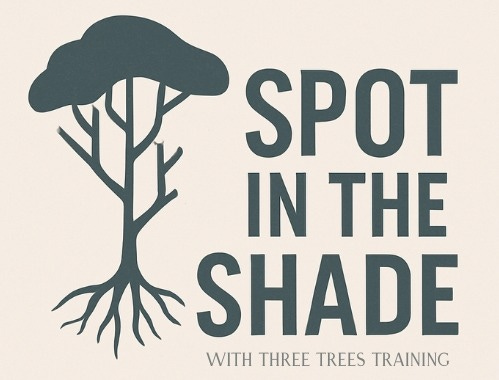When Health Is for Sale, Guilt Is the Business Model
Because shame is cheaper than systemic restructures.
Let’s start with the uncomfortable truth: wellness culture wasn’t built for everyone. It was built for the already well and the well-off—people with time, money, childcare, a deep love for mason jars, and enough fridge space to store prepped quinoa and farm-raised chicken breast.The ones who take magnesium baths and actually feel better after. The rest of us?
We were sold shame, handed a greens powder (2% OFF WITH CODE: TRYHARDER), and told to “just start somewhere” by someone who’s never had to start from scratch, maybe ever.
I’ve worked with plenty of hardworking, intelligent, and incredible people to see that most people aren’t falling short because they’re lazy or unmotivated—they’re falling short because the system wasn’t built with their reality in mind. Nutrition isn’t just about food. It’s about privilege, patterns, bandwidth, and surviving capitalism with your dignity intact.
And I’m done pretending otherwise.
So let’s talk about it. Like, actually talk about it.
Nutritional privilege is blaming individuals for what capitalism created— and calling it motivation.
Nutritional privilege is calling it "simple" when you’ve never had to unlearn decades of shame, scarcity, and silence around food.
Nutritional privilege is labeling your habits as "clean eating" while judging people who rely on convenience—without ever questioning if you actually understand nutrition. Convenience doesn’t equal failure. Sometimes it equals survival.
Nutritional privilege is calling meal prepping "discipline" calling meal prepping “discipline”—when you’ve got the time, money, and fridge space to do it. It’s about 30% grit, but 70% access.
Nutritional privilege is judging food choices when you’ve never had to choose between gas and groceries. If you haven’t stood in that moment, maybe don’t speak on it.
Nutritional privilege is thinking people don’t know what to eat, when the system has made the right choice the hardest one. This isn’t a knowledge gap—it’s a resource gap.
Nutritional privilege is assuming wellness is universal, when it collapses the second someone loses childcare, housing, or income. True wellness has to be adaptable—or it’s not wellness at all.
Nutritional privilege is having a quiet, clean kitchen to cook in, while others are juggling three meals in chaos, noise, and constant interruption.
Nutritional privilege is being able to work out because someone else is watching your kids. Or because you don’t have to pick up a second shift tonight.
Nutritional privilege is having the mental bandwidth to plan meals, when others are still in survival mode from the night before.
Nutritional privilege is being able to hire a nutrition coach, when it’s simply not in the budget for most people.
And before anyone starts furiously typing a rebuttal in the comments: this isn’t about discrediting your effort. I’m not here to dismiss your progress, your pain, or your personal healing. We’ve all had our own battles.
But when it comes to food, health, and access—we’re not all starting from the same damn line. Some people begin the race with a head start. Some begin with weights tied to their ankles. Some are still trying to find the damn track while others are halfway through the finish line—smoothie in hand (because that’s good post-race nutrition.)
This isn’t about guilt. It’s about awareness—of the access that others don’t have in a system that profits on people staying underfed and overworked.
Until we acknowledge the uneven playing field, we’ll keep designing solutions for the already-resourced—and calling it wellness for all.
Because here’s the truth: when you’re struggling with your health—especially your weight—the world will throw a thousand tired lines at you:
“Just try harder.”
“Eat less, move more.”
“You must not want it bad enough.”
As if discipline can override medical debt, exhaustion, or time poverty.
As if broccoli can fix broken systems.
If you see yourself in these barriers, no—you’re not doomed. But it does mean you have to get brutally honest about what your life actually looks like. Quit shaming yourself out of systems that work for you just because someone on the internet said your protein shake is toxic or that frozen meals are a moral failure.
Find nourishing foods you actually like. Make a plan you can follow on your worst day. And do that—on repeat. Slowly, consistently, imperfectly. Adjust when life demands it.
Because someone out there is meal-prepping with a podcast on. And someone else is packing lunches at 10 p.m. while doing mental math on rent. Both are doing everything they can—but only one is told to find more discipline.
If you’re still here, hi. Grab a seat out of the heat.
This blog, Spot in the Shade, is where I:
Break down research on fitness and nutrition in a way that makes sense. Digestible. Science-forward. Accessible. Research by all voices and studies on all bodies.
Write how-to guides for figuring out how much you actually need to eat for your goals (without spiraling or hiring anyone, myself included)
Share free, accessible workouts for people with limited time, space, or energy.
Say what I really think about fitness and nutrition trends (spoiler: it’s not always nice, but it’s always backed by meta-analyses and double-blind research studies).
Open my DMs to anyone who feels lost, burned out, or just wants to know where the hell to start
I’m not here to sell you a transformation or a six-week reset. I’m here to offer clarity, compassion, and a place to sit down in the shade while you figure things out.
Because you’re not broken. The system is. And you deserve information that actually meets you where you are. Grab a seat and stay as long as you need.



